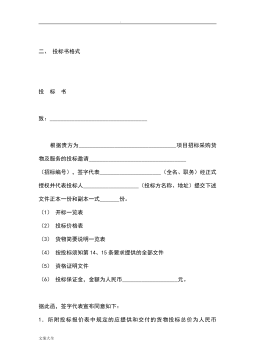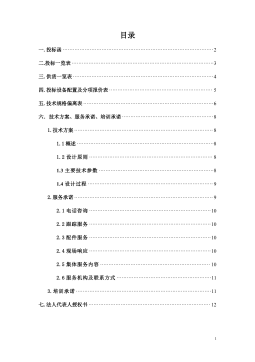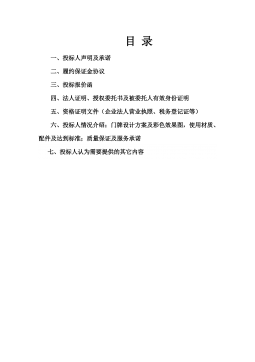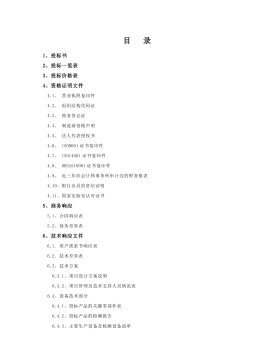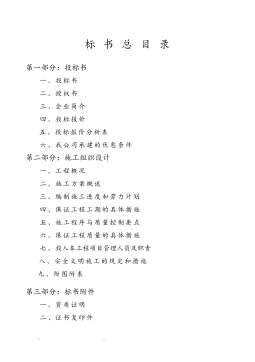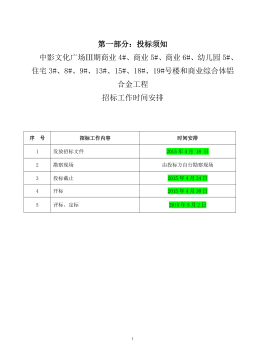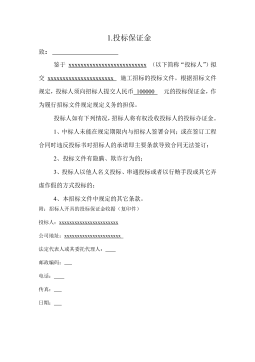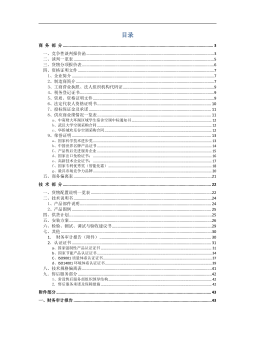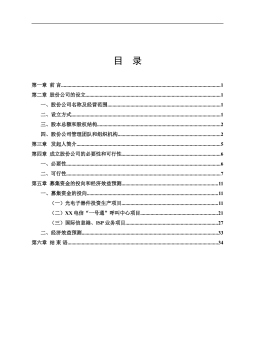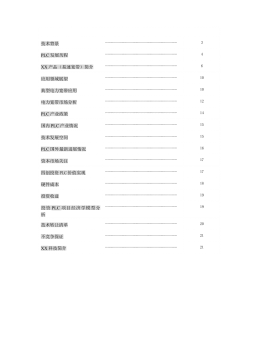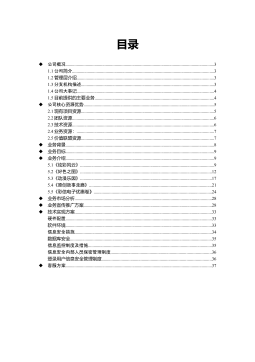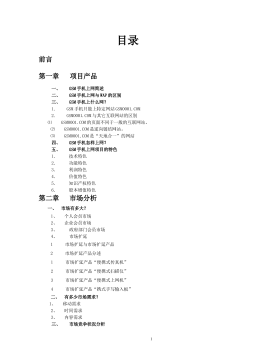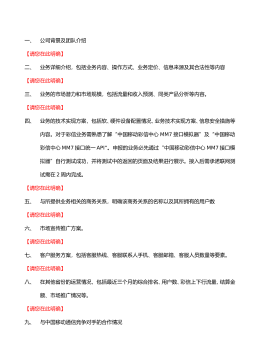我国证券市场政策有效性分析——基于1990-2005年重大政策的研究
VIP免费
浙江财经学院硕士学位论文
I
摘 要
目前对于“政策对证券市场影响”这方面的研究还只是流于表面,或只是通
过理论研究证明政策确实对证券市场产生重要而直接的影响,或只是通过证券市
场指数的变化分析说明政策的影响程度,很少将政策的制定目的与实际对证券市
场的影响结合起来分析,缺乏对于证券市场政策有效性的全面研究。本文正是以
这一欠缺为切入点,以“政策有效性分析”为核心,根据政府在不同阶段(奠基
性阶段、市场化发展阶段、国际化阶段)对于证券市场所实施的不同政策,结合
当时的经济背景,揭示政府制定与之对应的相关政策的原因及主要目的,分析政
策在实际实施过程中的有效性和目标的实现程度,以及由此对证券市场所造成的
影响,以期能通过总结历史经验,为今后的政策制定提供些许参考,以利于我国
证券市场更加稳定、健康、快速的发展。
正文以时间顺序分三个阶段对“政策有效性”进行较为全面的分析。
第一部分以“国企改革”为背景,分析了在证券市场发展的初期(即奠基性
阶段),政府试图通过主导证券市场,使其“在规范中发展”,以实现加速国有企
业改革进程的政策目的。然而本文通过比较分析发现,这种过度干预的现象,不
仅导致证券市场运行效率的下降,而且直接影响到政府的公信力,使得证券市场
基本上沦为了国有企业改革筹资的工具,制约了证券市场健康的发展,反过来,
不健康的证券市场又限制了国有企业的筹资及股份制改革,形成恶性循环。因此,
国有企业能否充分利用资本市场完成其制度再造,关键在于政府能否真正从促进
证券市场的健康发展出发,采用更科学更严格的筛选制度选择真正优质有发展潜
力的国有企业上市。只有真正着眼于证券市场的稳定健康,才能形成良性循环,
推进国有企业的顺利改革。“竭泽而渔”这种过于短视的行为,是无法长远的。
第二部分在实证分析证券市场持续低迷中展开。在“市场倒逼政策”的情况
下,政府逐渐认识到其职能在于规范市场的行为,弥补市场自身的缺陷,而非直
接干预市场的变化。《证券法》的颁布,预示着证券市场进入了市场化发展的阶段,
也意味着政府对待证券市场的态度由“规范中发展”转向“发展中规范”。本文通
过规范性研究指出,虽然市场化改革取得了一定的成效,但由于股权分置等历史
浙江财经学院硕士学位论文
II
的原因,政府和投资者还存在的利益的冲突。当政府部门都成为证券市场的利益
相关者时,老百姓和政府部门之间(或者说投资者和监管层之间)则难有互信,
规范的社会信用体系也就难以确立。因此,为了减少民众对政府提供市场规则的
误解,政府就必须对自己的职能有一个清楚的界定,把政府直接进入市场和为市
场提供规则区别开来。这样才能使市场建立起信心。
第三部分分析了证券市场国际化的进程。政府在推进证券市场市场化的同时,
积极与国际接轨,推进证券市场国际化发展,利用国际成熟的经验、先进的投资
理念、完善的法律法规及充沛的资金来改革中国证券市场,使其“在稳定中发展”,
事实证明这些措施对于证券市场的发展已产生了一定的积极作用。但本文同时指
出利用国外证券投资应限制短期资本流入,吸引中长期资金,严把资金汇出入的
关口,以防止金融风险。从根本上讲,证券市场国际化进程就是市场制度的变迁
过程,由于我国证券市场在立法与管理、市场体系建设和市场运作、交易制度等
方面需要一个逐步完善的过程,因此中国的证券市场的国际化应坚持“安全优先、
兼顾效率”的原则和“循序渐进、稳步开放”的发展战略,分步骤、分阶段地推
进中国证券市场的国际化进程。
关键词:证券市场;政策;有效性;市场化;国际化
浙江财经学院硕士学位论文
III
ABSTRACT
At resent, the research of the influence of the stock market’s policy is not
comprehensive. It’s just flowing on the surface, testing that policy did has important
and direct influence to the stock market only through the fundamental research, or
explaining the influence degree only through the stock market’s index change. It lacks
the analyzing of the policy’s formulation goal with its actual influence. This article
precisely takes this shortcoming as the breakthrough, coring the “policy validity
analysis”. Promulgating the policy’s reason and the main purpose, analyzing the actual
validity , the goal’s realization degree and the influence to the stock market with the
different policies on the different stages (foundation stage ,marketability development
stage, internationalization stage),with the true economical background. From the
summary history experience, there will be able to provide the trifle reference as the
next policy formulation, favored our country stock market to be more stable, more
health and developing more fast.
The text made a more comprehensive analysis to the “policy validity” with three
stages by the time.
Firstly, with a background of “the state-owned enterprise’s reformation”, analyzed
(i.e. has laid a foundation stage) the stock market’s initial development period. The
government attempted to standardize the stock market’s development through the
leadership, in order to accelerate the state-owned enterprise’s reformation. However,
through the comparative analysis, the text discovered that this excessively intervenes
phenomenon not only falls the stock market’s operating efficiency down, but also
directly affects government's credit. Basically the stock market was degenerated into a
tool which financed the state-owned enterprise’s reformation, restricted seriously the
stock market to develop healthy. This unhealthy stock market did limit the state-owned
enterprise’s finance and the system’s reform, which in turn, formed the vicious circle.
Therefore, the government from the stock market promotes development, uses the
浙江财经学院硕士学位论文
IV
more scientific and stricter screening system to choose the state-owned enterprise. The
development potential to be on the market is the key to the state-owned enterprise
which would fully regenerate its system using the capital market. The positive cycle
which promotes the state-owned enterprise's reform can only be from the stock
market’s stable and healthy development. “Dry the river and fishing”, it’s a
shortsighted behavior, cannot stay for long.
The second part continues in the murky stock market with the diagnosis analysis.
Under the situation of “Compels the policy but actually in the market”, the government
gradually realized that standardizing the market, making up the market’s flaw are his
duty, but he cannot directly intervene the market. Promulgating the "Securities law",
indicates that the stock market entered into the marketability development stage. It also
means that the government changed its manner from “develop by the standard” to
“standard in the development”. With the regulated research, this text pointed out that
the marketability reform has obtained certain results, but there are many problems. For
example, the government and the investor have benefit conflict, because of the setting
of the stockholder's rights and so on. When the government department becomes the
benefit counterparts in the stock market, there will be no mutual confidence between
people and the government department (or investor and guardian), and so does the
social credit system. Therefore, in order to reduce populace’s misunderstanding of the
market rule which provided by the government, the government must explicit his own
function, distinguish the direct interference and provide market rules. Then the market
would build up the confidence.
The third part has analyzed the stock market’s internationalization. During the
marketability, the government connected to the international rails positively,
internationalized the stock market, using the international mature experience, the
advanced investment idea, the consummate laws or regulations and the abundant fund
to reform Chinese stock market. Consequently, it “develops in the stability”. The fact
proved that these measures have had certain positive effect to the stock market.
Meanwhile, this article pointed out that the use of short term capital from overseas
浙江财经学院硕士学位论文
V
negotiable investment should be limited, long-term fund should be more attracted the
funds out and in should be striated, preventing the financial risk. Fundamentally, the
internationalization of the stock market is also the process of the market system’s
vicissitude. Because of the special legislation and management, market system
construction and operation, transaction system, Chinese stock market needs a process
which consummates gradually. Therefore, during the internationalization, we should
obey the principle “safe first, proper attention to both efficiency” and the
developmental strategy “proceeds in an orderly way, opens with steady steps”.
Gradually, advance Chinese stock market’s internationalization stage by stage.
Keywords: Stock market; Policy; Validity; Marketability; Internationalization
浙江财经学院硕士学位论文
VI
目 录
导 论···························································································································· 1
第一章 经济转型,为国有企业解困
——奠基性阶段的中国证券市场政策有效性分析···························· 14
第一节 改革开放后中国证券市场的起步及其动因 ········································ 14
第二节 以“为国企解困”为目标所设立的制度和颁布的政策····················· 18
第三节 政策有效性分析 ··················································································· 27
本章小结··············································································································· 32
第二章 推动证券市场逐步转向市场化发展
——市场化发展阶段中国证券市场的政策有效性分析···················· 33
第一节 推动证券市场市场化发展的紧迫性和必要性 ···································· 33
第二节 为“推动证券市场市场化”而颁布的相关政策 ································ 39
第三节 政策的有效性分析················································································ 42
本章小结··············································································································· 46
第三章 对外开放,与国际接轨
——国际化发展阶段的证券市场政策有效性分析···························· 47
第一节 证券市场国际化的背景与必要性 ························································ 47
第二节 为“推动证券市场市场化”而颁布的相关政策 ································ 54
第三节 政策的有效性分析················································································ 58
本章小结··············································································································· 61
结 语······················································································································ 62
参考文献······················································································································ 67
致 谢······················································································································ 72
摘要:
展开>>
收起<<
浙江财经学院硕士学位论文I摘要目前对于“政策对证券市场影响”这方面的研究还只是流于表面,或只是通过理论研究证明政策确实对证券市场产生重要而直接的影响,或只是通过证券市场指数的变化分析说明政策的影响程度,很少将政策的制定目的与实际对证券市场的影响结合起来分析,缺乏对于证券市场政策有效性的全面研究。本文正是以这一欠缺为切入点,以“政策有效性分析”为核心,根据政府在不同阶段(奠基性阶段、市场化发展阶段、国际化阶段)对于证券市场所实施的不同政策,结合当时的经济背景,揭示政府制定与之对应的相关政策的原因及主要目的,分析政策在实际实施过程中的有效性和目标的实现程度,以及由此对证券市场所造成的影响,以期能通...
作者:周伟光
分类:高等教育资料
价格:150积分
属性:77 页
大小:817.95KB
格式:PDF
时间:2024-09-20


